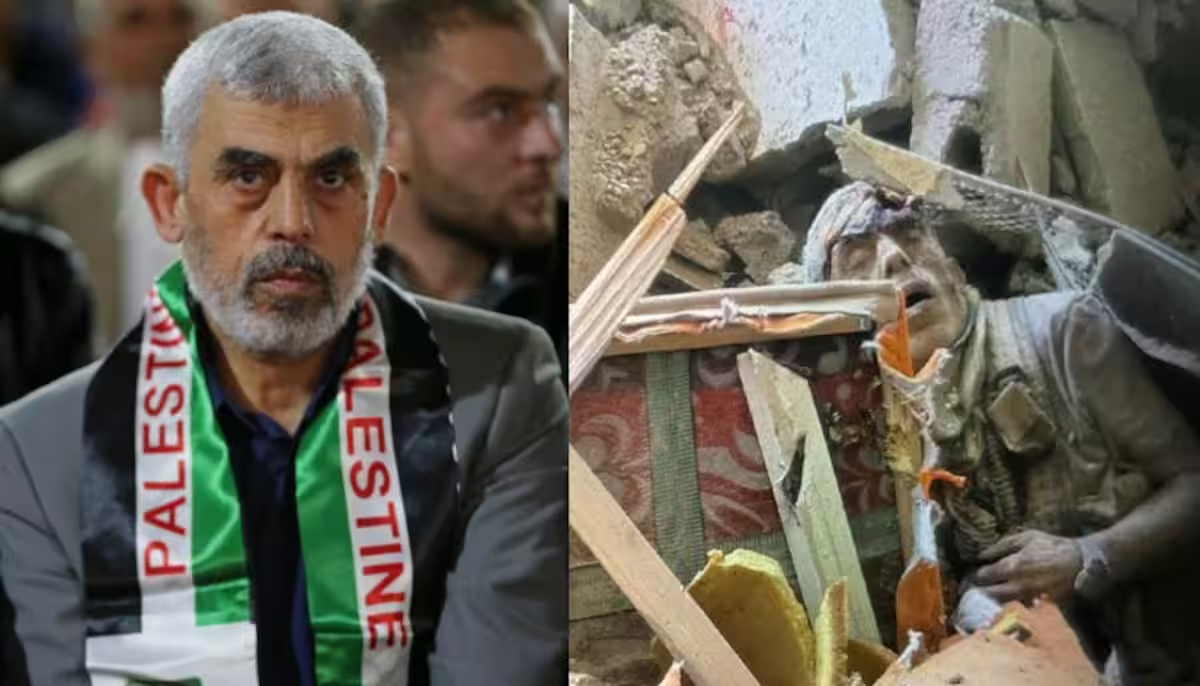Over the past year, Israel has executed precision-based operations to eliminate leaders of Hamas and Hezbollah, demonstrating a highly effective counterterrorism strategy that India could learn from. This report details the eliminations of key figures like Yahya Sinwar, Ismail Haniyeh, Mohammed Deif, and others, drawing vital lessons that could help India handle cross-border terrorism. Israel’s approach, combining advanced intelligence, military precision, and global reach, offers a compelling model for India in neutralizing terrorist threats from groups like Lashkar-e-Taiba and Jaish-e-Mohammed.
1. Intelligence-Driven Operations and Precision Targeting
Israel’s success is largely based on its ability to gather and act on high-quality intelligence. Over the past year, Israeli forces have taken out several top leaders of Hamas and Hezbollah through targeted strikes, avoiding large-scale collateral damage while hitting key figures within the terror groups.
For instance:
- Yahya Sinwar, head of Hamas’ Gaza political bureau, known for his brutal tactics, played a key role in the October 7, 2023, attack on Israel. He was eliminated by Israeli airstrikes following extensive surveillance.
- Ismail Haniyeh, the political leader of Hamas, was targeted and killed in Tehran in October 2023 during a diplomatic visit. This strike shows Israel’s global operational capability, taking out leaders far from home soil.
- Mohammed Deif, commander of the al-Qassam Brigades, Hamas’ military wing, was killed in July 2024 in Gaza. Deif was one of the most wanted terrorists, known for surviving multiple Israeli assassination attempts. His demise marked a significant victory for Israel.
India should adopt a similar intelligence-driven approach, focusing on eliminating key figures of terror groups operating from Pakistan. Investing in advanced surveillance technology, drone operations, and artificial intelligence (AI)-based intelligence gathering can provide the precision required to carry out such targeted operations.
2. Decapitation Strategy: Disrupting the Command Chain
One of Israel’s effective tactics has been decapitating the leadership of Hamas and Hezbollah, thereby disorganizing their chain of command and creating confusion within the ranks. The elimination of leaders like Marwan Issa in March 2024 and Saleh Arouri, a Hezbollah commander, in January 2024, caused major disruption within their organizations.
- Marwan Issa, the deputy commander of the al-Qassam Brigades, was a critical figure managing Hamas’ day-to-day military operations. His death crippled Hamas’ logistics and coordination.
- Saleh Arouri, a Hezbollah commander and one of the most wanted figures in the Lebanese militia, was killed in a precise airstrike in Beirut.
India could replicate this decapitation strategy to weaken terror outfits such as Lashkar-e-Taiba and Jaish-e-Mohammed, whose leaders operate with impunity across the border. By targeting leadership figures like Hafiz Saeed or Masood Azhar, India can deal a critical blow to the operational effectiveness of these groups.
3. Global Reach: Neutralizing Threats Beyond Borders
Israel’s ability to neutralize enemies even outside its own territory demonstrates its global reach. The elimination of Qassem Soleimani, the head of Iran’s Quds Force, in January 2020, stands as an example of Israel’s willingness to strike enemies anywhere. Soleimani’s killing sent shockwaves throughout the region and forced adversaries to recalibrate their strategies.
India faces a similar challenge, with leaders of terror groups often hiding in countries that provide them safe havens. A robust and well-coordinated intelligence-sharing network with allies could help India enhance its global counterterrorism reach. Collaborating with friendly nations to conduct joint operations, like Israel and the U.S. have done, could be a strategic advantage for India.
4. Psychological and Strategic Deterrence
The targeted assassinations of key figures such as Hassan Nasrallah, leader of Hezbollah, represent a psychological blow to the terror organizations, sowing fear and uncertainty among their members. Although Nasrallah is believed to still be alive, his life remains under constant threat due to Israel’s relentless pursuit.
This kind of psychological warfare can be beneficial for India as well. By showing that no leader is beyond its reach, India can create a state of perpetual insecurity within terror networks. Leaders of groups like Lashkar-e-Taiba or Hizbul Mujahideen would think twice before organizing attacks on Indian soil if they know they are under constant surveillance and could be eliminated at any time.
Key Hamas and Hezbollah Leaders Eliminated by Israel (2023-2024)
- Yahya Sinwar: Leader of Hamas in Gaza, killed in a missile strike in Gaza after planning the October 7 attacks.
- Ismail Haniyeh: Hamas political leader, killed in Tehran during a diplomatic visit in October 2023.
- Mohammed Deif: Military commander of Hamas, eliminated in July 2024 in Gaza.
- Marwan Issa: Deputy commander of the al-Qassam Brigades, killed in March 2024.
- Saleh Arouri: Senior Hezbollah commander, killed in January 2024 in Beirut.
- Qassem Soleimani: Head of Iran’s Quds Force, killed in January 2020.
5. The Role of Advanced Technology and Drones
Israel has utilized its advanced military technology, especially drones, to target terrorist leaders effectively. Mohammed Deif, for example, was killed in an aerial strike involving drones, which allowed for precise targeting while minimizing civilian casualties. India, too, should expand its drone capabilities, which would be particularly useful in regions like Pakistan-administered Kashmir, where terrorist leaders hide in mountainous terrain.
Investing in cutting-edge technologies such as real-time satellite imagery, AI-powered reconnaissance, and cyber intelligence will give India the upper hand in locating and eliminating key targets before they can execute attacks.
Conclusion: Strategic Counterterrorism Lessons for India
The recent successes of Israel in eliminating Hamas and Hezbollah leaders offer a wealth of lessons for India. By adopting Israel’s intelligence-driven precision strikes, decapitation strategy, global operational reach, and psychological deterrence, India can significantly strengthen its counterterrorism efforts. This proactive approach is crucial for India, particularly as cross-border terrorism continues to pose a grave threat to its security and sovereignty. The time to act is now—before another major attack like the Mumbai 26/11 strikes occurs again.






